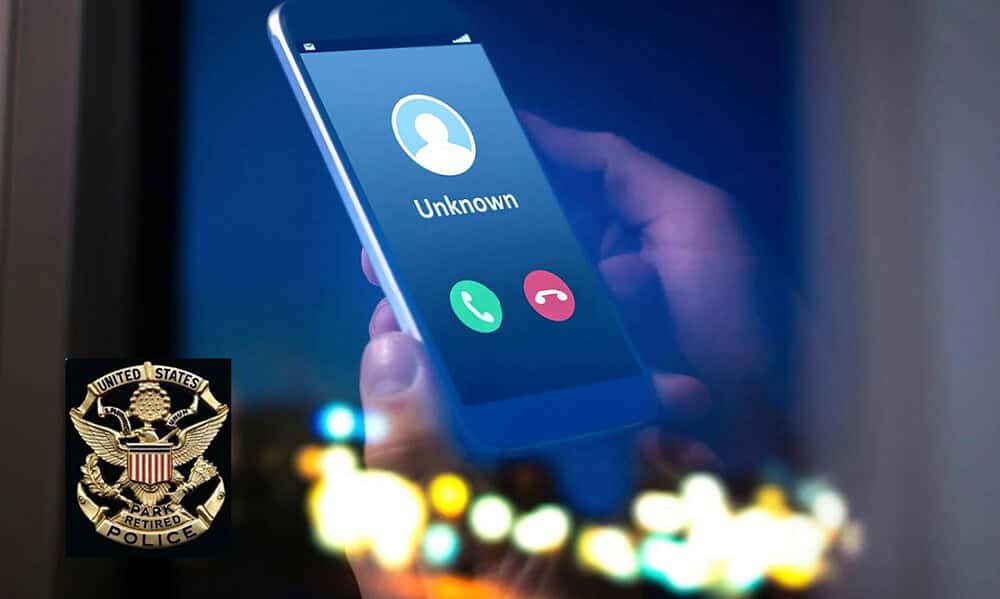Avoid phone scams: We provide you with a list of phone numbers in the United States that people call you from to scam you and steal your money or data.
Technological advancement has brought benefits, but it has also brought an increase in phone scams and scam messages. A joint study conducted by Truecaller and Harris Poll revealed that in the first quarter of 2022, losses resulting from phone scams in the United States reached $39.5 billion.
Theft of money and data through phone calls and text messages is so common that some states have seriously warned their residents and told them how to act immediately.
That’s the case in Texas, where losses from these scams reached $39.5 billion in the first quarter of 2022, according to data from Truecaller and Harris Poll. Learning how to recognize phone scams and taking preventive measures are essential to protecting yourself from potential fraud.
How to recognize these fraudulent calls?
Scammers use convincing methods to trick people. Some common signs of phone scams include:
- Attractive offers or appeal to charity: Scammers try to attract attention with attractive promises or requests for donations.
- Pressure to make quick decisions: The victim is pressured to make rash decisions.
- They avoid direct questions: Scammers avoid providing clear information about the company or offer.
- They ask for confidential information: They ask to confirm sensitive personal or financial information.
- Unusual payment methods: They ask for payment in cash, gift cards, or money orders, which are uncommon methods for legitimate transactions.
- Threats: They use threats, and even arrest, to coerce the victim into cooperating.
- Robocalls or recorded messages: They start the call with pre-recorded messages.
- Pretending to be friends or family: They pretend to be acquaintances who urgently need money.
How to protect yourself?
- Not answering calls from unknown numbers: Avoid answering calls from numbers you don’t know to reduce the risk of scams.
- Sign up for the Do Not Call List: Register your number on the federal Do Not Call List donotcall.gov And on the Texas list texasnocall.com To reduce unwanted calls.
- Using services to block calls: On cell phones, install software that blocks unwanted calls. Many companies offer similar services for home phones.
- Please check before submitting information: Before sharing sensitive information, confirm the caller’s identity.
- Report fraud: Uses ReportFraud.ftc.gov To report fraud and contribute to the fight against phone fraud.
- Educating others: Share information about phone scams with family and friends to raise awareness and prevent potential victims.
Protect your privacy and your money by following these measures. Prevention and awareness are key to avoiding falling for phone scams.
US phone numbers where they can scam you
BeenVerified analyzed more than 157,000 suspicious messages and calls and identified 12 phone numbers key to scam tactics. Know these numbers to protect yourself:
- (917) 540-7996: A marketing campaign inspired by “The Scream”.
- (805) 637-7243: Announces fake millionaire prizes.
- (301) 307-4601: Simulates being a postal service, alerting about reserved parcels.
- (863) 532-7969: Report frozen debit cards.
- (865) 630-4266: Pretends to be a Wells Fargo employee, and freezes fake accounts.
- (904) 495-2559: Notify prizes won in special AT&T drawings.
- (312) 339-1227: It’s about miracle product and package shipping scams.
- (469) 709-7630: He impersonates relatives and asks to call fake numbers.
- (858) 605-9622: He pretends to be a bank employee and warns against waiting for accounts.
- (347) 437-1689: Report failed deliveries, request personal information.
- (878) 877-1402: Calls to block the card and requests PINs from fake employees.
- (202) 221-7923: Combines personal data to attract attention, and asks for a PIN.
Preventive measures and resources
Be alert for calls from unknown numbers. Register in National Do Not Call Registry and use the Services to block unwanted calls on your mobile devices. Also learn about scams and report them through ReportFraud.ftc.gov.
Additional US Government Resources:
Protect your privacy and money. Don’t let phone scams compromise your security.

“Social media evangelist. Student. Reader. Troublemaker. Typical introvert.”

:quality(85)/cloudfront-us-east-1.images.arcpublishing.com/infobae/E3MFZXDKZJGKFAMKCA4KUTH3PE.jpg)





More Stories
Kiyosaki's perspective: The United States in economic depression
This is the list of the richest people in the world for the year 2024, according to Forbes magazine
The impressive underground transportation system created by Elon Musk for the exclusive use of Tesla cars in Las Vegas